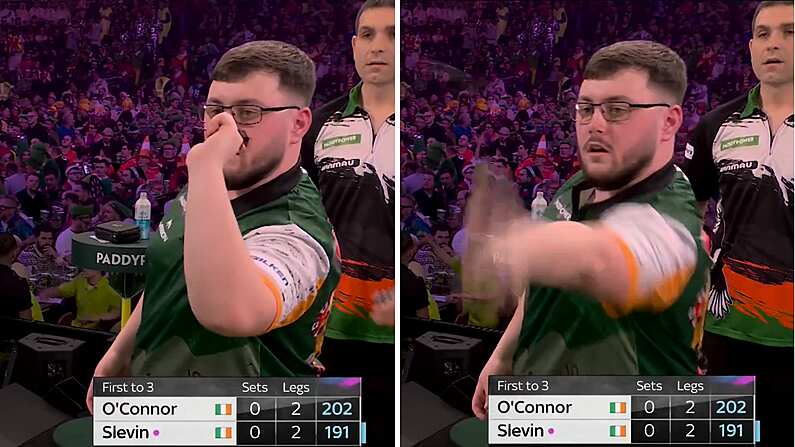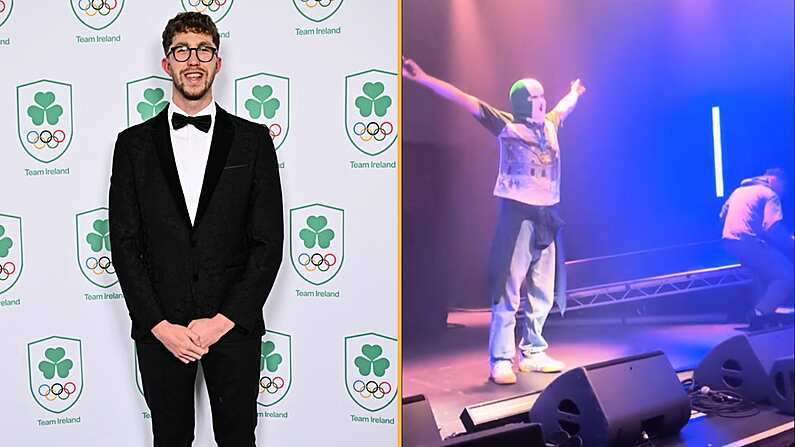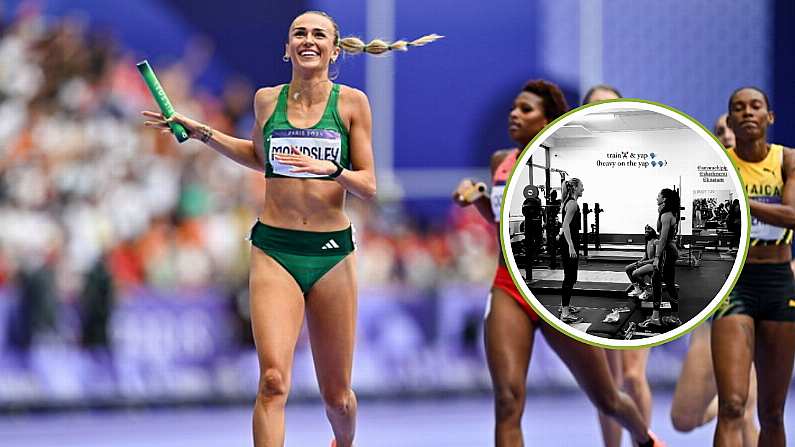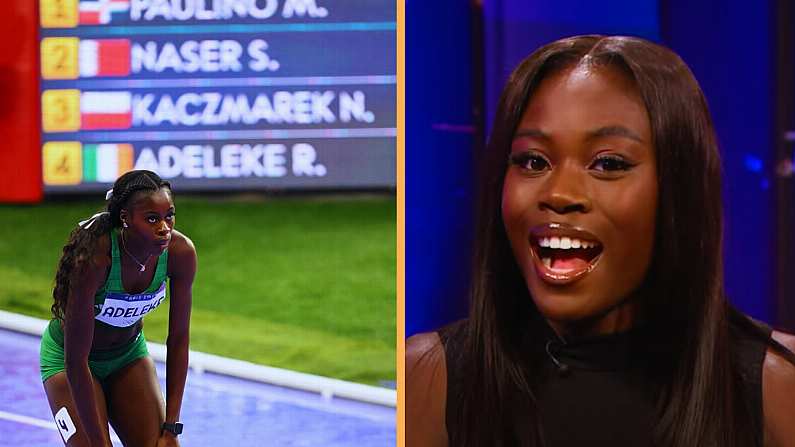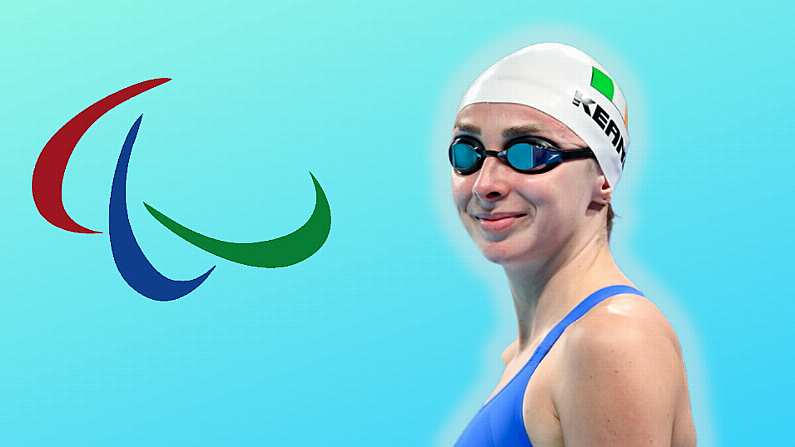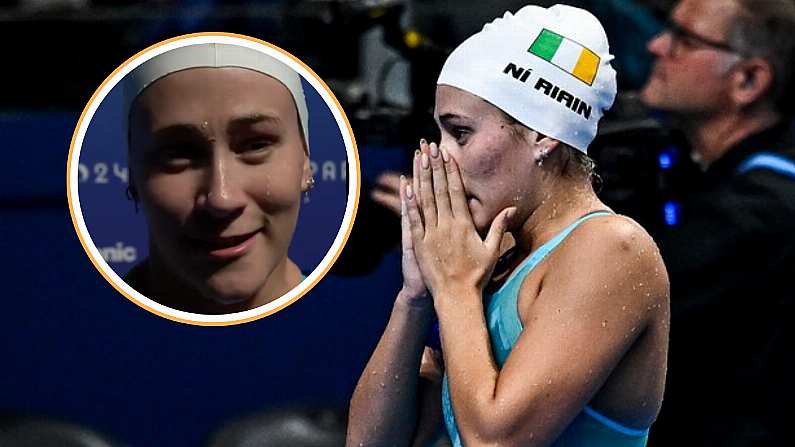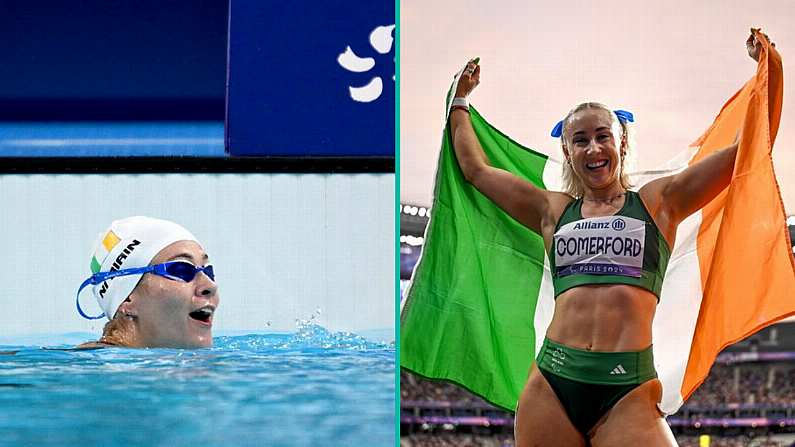Dubliner Colin Judge has faced plenty of obstacles on his journey to qualifying for the 2021 Paralympics in table tennis. With the final qualification events just over two months away, he is ultimately grateful for the extra preparation time afforded to him by the year’s delay in getting to Tokyo.
Judge was born with three missing limbs. After narrowly missing out on qualification for Rio 2016, he went on a blistering run to take gold at the following year’s European Championships. It was after the success at the Euros that things took a drastic turn for Judge.
The Paralympic classification for wheelchair table tennis is based on the severity of competitors’ disabilities – class 1 being the “most disabled”, in Judge’s words, through to class 5 being the least physically disabled. Having competed his whole life in class 2, just beginning to hit his stride, Judge was hit with “one of the most difficult things” he had ever had to deal with – reclassification.
“I was classified into class 2 at the age of 13 and I presumed that it was something that was never going to change. So, when the doctors told me that day that they were sorry and they were going to have to move me up into class 3…I knew what it meant immediately, it hit me really hard. It meant that I was gonna lose my ranking, lose my funding, I was going to be competing against athletes who were considerably physically stronger.”
The ramifications of the sudden change were immediately clear to Judge – the bar had suddenly been raised, not far out from a Paralympics. Where once he had felt comfortable and had begun to hit his stride, his journey now faced a drastic reset.
“Worst of all my qualification hopes for Tokyo 2020 were seriously in jeopardy. Before that I was number 4 in the world and European champion – missing out on Tokyo wasn’t really something that was on my mind, I thought it was a guarantee. The goalposts moved and it has been a huge challenge.”
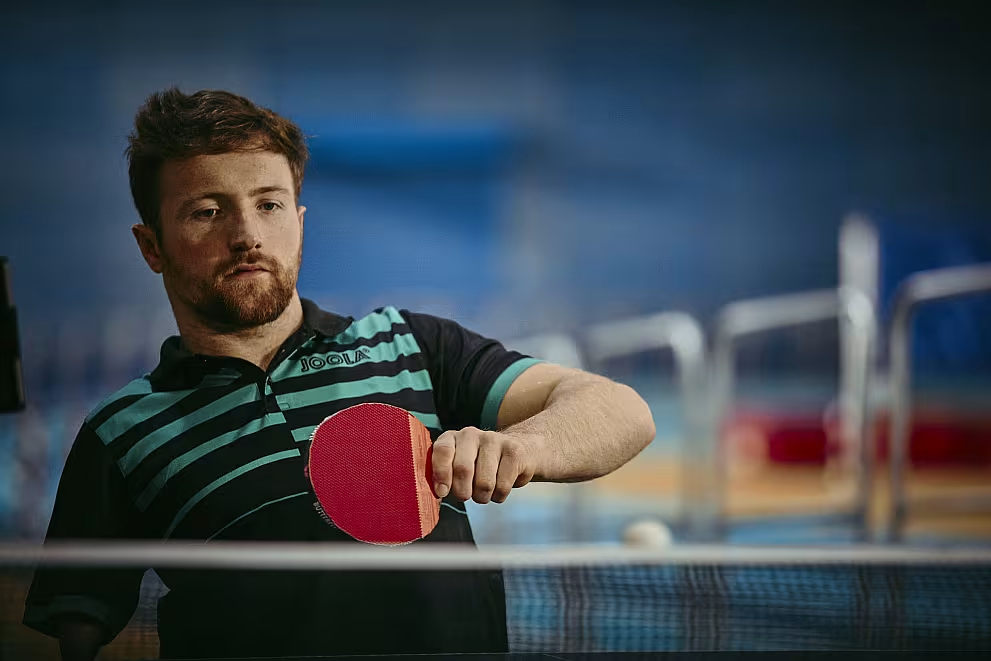
Speaking to Judge gives you a great sense of how determined he is and how well he has responded to adversity throughout his career. The reclassification was, as he has said, arguably the biggest challenge of his career yet – but he is delighted to say he has come out better on the other side of it.
“I’m a lot better now because of it. I’m very glad that I went on sabbatical for my job and I’ve trained full time, I’ve worked very hard for two years and I’m playing at a much higher level than I ever would have if I was in class two – no matter how I’m measured, I know that I’ve put in the work now and I’m en route to becoming the best that I can be, so from that point, it’s been really good.”
The 2020 Paralympic and Olympic Games have now become the 2021 Paralympic and Olympic Games – in all but name, the goalposts have completely shifted for Tokyo 2020. The challenges have been immeasurable for athletes – from struggles with accessing training facilities, to uncertainty over qualification berths and the viability of the games going ahead in general.
The question of funding is one that Paralympics Ireland are seeking to address with their ‘Next Level’ fundraising campaign – indeed, the reason Judge was speaking to us was to promote the campaign. He recently appeared on The Late Late Show alongside fellow Tokyo hopefuls Nicole Turner, Ellen Keane and Martin Gordon to promote the fundraiser, which has seen staggering levels of public support thus far, a point he drove home during our chat.
The public have been so generous, I think €70,000 has been raised so far, which is absolutely incredible. That goes a really, really long way in supporting us on our journey to Tokyo 2020 and onwards to become the best we can be. Obviously, the Paralympic Games has been postponed by a full year and it’s a year we didn’t plan for, so that obviously meant that there’s significant additional costs involved.
I’ve invested a lot of time and money in to table tennis, I had the means to do so and I think there’s some very good young players coming up behind me and I’d love it for them if they could be given the same opportunity that I was and…you know, then, hopefully I could have a few teammates in Paris 2024 or LA 2028. At the moment, obviously, it’s just me and my coach Gavin McGuire. Which, you know, we get on well – we don’t get on that well, though! It is nice to have other people around!”
The fundraiser is ongoing and donations can be made at Paralympics.ie.
During his Late Late appearance, Judge’s teammate, swimmer Ellen Keane spoke on the issue of Paralympians being incorrectly labelled as “Olympians” – and it’s a distinction that Judge echoes as being incredibly important, especially when it comes to inspiring the next generation.
“It is a very important distinction. I suppose, like, we are similar in one way, like that we’re playing similar sports and we’re doing everything that we can to become the best we can be and that’s the similarity, but I suppose Paralympians have had a very different journey.
If someone in a wheelchair or someone with a disability hears that Ellen is one Ireland’s top “Olympians” – you know, she’s won a medal in Tokyo – that’s not really gonna strike a chord with them. Whereas, if they hear “Paralympian” and they know what Paralympics means – that it stands for people with a disability competing at the top level – I think that’s absolutely massive.
I think people like Ellen and hopefully myself in the future, if we could be called “Paralympians” and…well, I hope that I will be very proud to be a Paralympian in Toyko! I think that distinction is very important”
The power of the Paralympics to inspire is one very dear to Judge’s heart. His alma mater, St. Michael’s College in South Dublin, has produced countless stars of Leinster and Irish rugby, including current squad members James Ryan, Dan Leavy and Ross Byrne. For Judge, rugby was never going to be an option, and it wasn’t until he discovered table tennis that a route to a career in sport became clear.
He has spoken before of how big the influence of British table tennis player David Wetherill and his performances at London 2012 were on his career and he once again used it as an example of the inspiring power the Paralympics can have.
“London 2012 was the first kind of taste that I got for para-sport at the top level and, you know, when I saw these guys with disabilities very similar to myself – that was something I’d never seen before. Prior to that, you know, I was in a rugby school, I was with able-bodied guys and I’d a lot of really good friends, but I couldn’t really relate to them.
To see people like Dave hitting a shot like that, playing at the very high level that he does, that’s really inspiring. When I look at that – and I know when a lot of other disabled athletes look at that – they might think, ‘if he can do it, why can’t I? We both have disabilities and he’s put the work in, that’s the difference, so if I put the work in, why can’t I get there?’”
At the end of the day, though, there really is nothing like a good bit of sibling rivalry to rile you up for competition.
“When I found table tennis and it was the only sport I could beat my brother at, you know, I’ve stuck at it from there and it’s changed my life in so many ways!”
Judge’s qualification for Tokyo rests on two qualification events in Slovenia in late May and early June. With an extra year to adapt to his new competition and to get himself in prime condition to compete, hopes are high that he can join the company of his Irish teammates in Japan this summer to inspire the next generation of Irish para-athletes.

Irish para-table tennis athlete, Colin Judge, pictured in support of Paralympics Ireland’s new fundraising campaign ‘The Next Level’. The campaign aims to raise vital funds for para-athletes in Ireland and help to support Team Ireland’s journey to Tokyo 2021 and beyond. The campaign has raised over €70,000 to date. You can get behind the team now at: https://paralympics.ie (Photo: Simon Burch)





